Elon Musk, Ben Shapiro on antisemitism and free speech
Reuploaded mainly for the archiving of important political discourse. Commentary/timestamps left below.
In response to criticism from the ADL, Elon Musk discusses X (Twitter), antisemitism and free speech with a group of Jewish thought leaders.
Timestamps:
00:00 – Ben Shapiro introduces the conversation.
05:10 – Shapiro asks where the line is drawn on free speech. Musk says the general principle is "operate according to the laws of the country" they're in; the best way of combatting hate / false beliefs is to address them directly.
07:45 – Shapiro raises bans, limited reach, and demonetisation. Musk says advertisers are very skittish, and suggests cost-tiered "degrees of advertiser safety" (i.e. if advertisers only want to advertise on SFW stuff, it will cost more due to higher demand).
14:12 – Further conversation on government vs private attempts at censorship.
16:47 – Shapiro talks about off-platform conduct being used as a reason to censor (Russell Brand), but they end up conflating censorship due to off-platform conduct and censorship due to assumption of guilt.
19:55 – Ari Lamm joins in. He asks why the ADL are assumed to be the voice of Jewish people in the public square. He and Musk discuss the interplay of technology and religion.
25:33 – Lamm suggests that the U.S. is inspired by the book of Deuteronomy, as it “lays out a vision for political order”. The difference is it leaves out a ‘prophet’ – Lamm asks if social media should fill this void. Musk agrees – he wants X to be a positive force for civilisation by promoting more “positive speech”, rather than simply getting rid of negative speech.
30:02 – Lamm and Musk discuss the sabbath (day of rest).
32:24 – Asher Gold introduces the second part of the conversation. The first question comes from former Israeli president Reuven Rivlin. He and Musk talk more about the erosion of civil liberties and “where to draw the line”.
40:03 – Rabbi Shmuley Boteach is next. They talk about anti-natalism and extictionist movements. Musk condemns them as “total madness”.
47:58 – Boteach discusses the impact of Tesla on international relations between Israel and Saudi Arabia.
51:00 – Natan Sharansky (Soviet dissident, later Israeli politician) talks about antisemitism vs antizionism (he says one is used to disguise or excuse the other, e.g. Durban conference).
54:43 – Sharansky asks if community notes can be used to highlight antisemitism (presumably so that people can recognise it). Musk doesn’t respond directly, but talks about not promoting things in the algorithm.
56:22 – Discussion continues. Musk says the far-left has a lot of anti-Israel sentiment, particularly elite high schools and colleges.
59:15 – Sharansky says that modern antizionism on the left reminds him of Soviet union propaganda, and suggests being wary of Neo-Marxism on university campuses. Musk agrees.
1:01:20 - Prof. Alan Dershowitz says that a true marketplace of ideas has never been tried. He says that standards of censoring speech should be independent of ideology or the target of hate.
1:06:04 - Dershowitz says that preventing “freedom of reach” can be abused in order to censor people. He also says different perspectives are needed to encourage the idea that the promotion of freedom of speech is non-partisan.
1:16:20 – Rabbi Menachem Margolin (chair of the EJA) invites Musk to visit the Auschwitz concentration camp. Musk says he’s open to it, but pushes back on any suggestion that he is ignorant of the holocaust.
1:19:52 – Margolin wants to maintain free speech while making sure there is no spread of antisemitism. He asks whether X will adopt the IHRA definition of antisemitism. Musk doesn’t answer directly, but says he’ll take a look at it.
1:21:23 – Margolin agrees that Musk is not antisemitic, but asks how X can better reflect his own values. They start talking past each other a bit (it’s surprising that Musk doesn’t simply say that X shouldn’t reflect his own values perfectly). He insists that generally, civility on X is getting better.
1:23:47 – Musk talks about the importance of criticism and how community notes work on X.
1:26:51 – Rabbi Abraham Cooper (chair of the SWC) says modern technology amplifies the risk of something like the holocaust happening again.
1:29:00 – Cooper says that X isn’t just a “debating society” or “marketplace of ideas” as access to it can be leveraged in order to organise, recruit and fundraise (e.g. ISIS activities). He asks what tweaks can be made to allow malefactors to say what they want, but to degrade their ability to market things.
1:35:34 – Musk doesn’t really answer this directly, but points out that the Nazis were censorious and says that he’s mindful of censorship being used to create a backlash that can be used as a recruitment tool for hate.
-
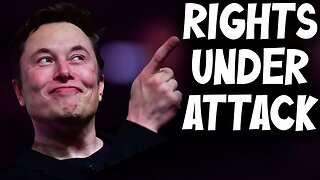 6:15
6:15
CoachsArchives
10 months agoElon Musk FIGHTS for our Freedom of Speech
296 -
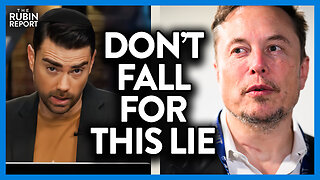 5:11
5:11
The Rubin Report
6 months agoBen Shapiro Debunks Elon Musk Antisemitic Accusations
23.4K25 -
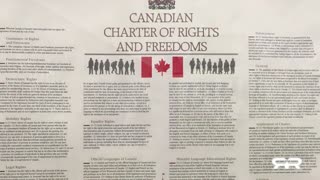 6:12
6:12
News from The Great Greg Reese
7 months agoGreg Reese Antisemitism and the Origin of Hate Speech
3.02K -
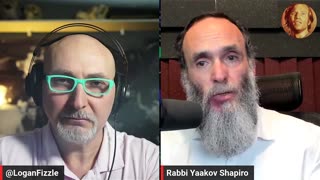 2:56:08
2:56:08
Logan Fizzle
2 months agoRabbi Yaakov Shapiro - Is Zionism the New Antisemitism?
118 -
 1:36
1:36
InnerLight
1 year agoIsraeli Minister: "Somebody criticizing Israel, then we bring up the Holocaust and Anti-Semitism"
3.29K2 -
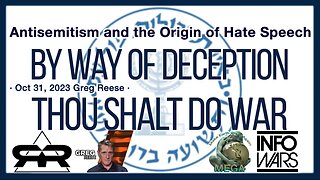 6:12
6:12
RAVries
7 months agoAntisemitism and the Origin of Hate Speech · Oct 31, 2023 Greg Reese · Mind control is a real threat and we are all affected
1.46K2 -
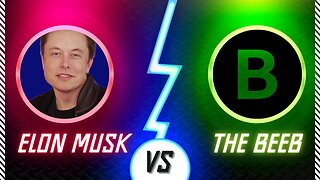 25:57
25:57
Declarations of Truth
1 year agoElon Musk v. censorship?
54 -
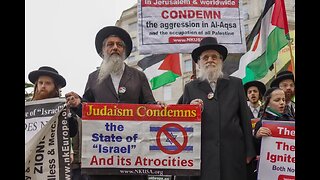 1:54:52
1:54:52
TheLastAmericanVagabond
2 months agoDavid Icke Interview - Zionist Infiltration Of Judaism, Weaponized Migration & Mainstream Alt Media
33.7K71 -
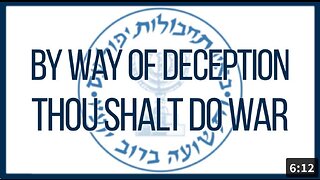 6:12
6:12
Banned News
7 months agoAntisemitism and the Origin of Hate Speech
534 -
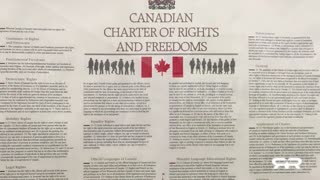 6:12
6:12
Nutmeg328
7 months agoAntisemitism and the Origin of Hate Speech
504